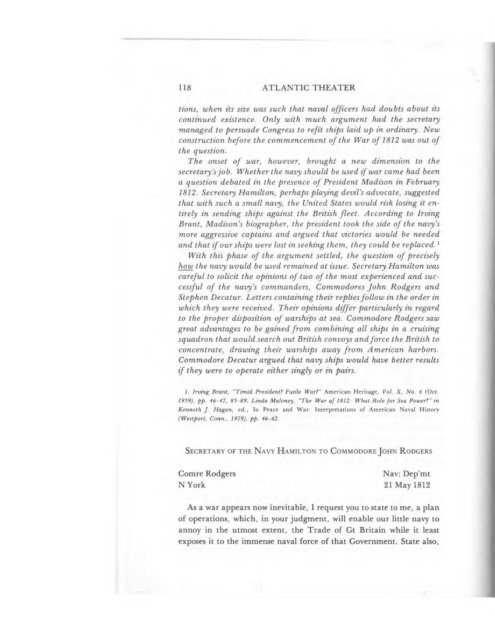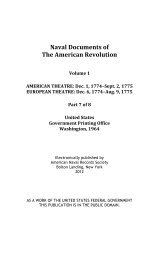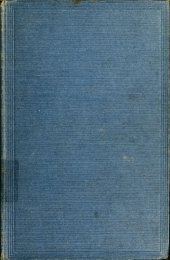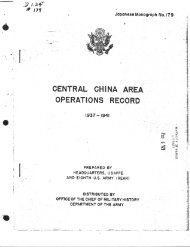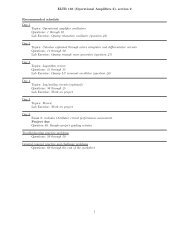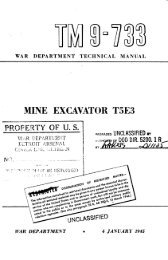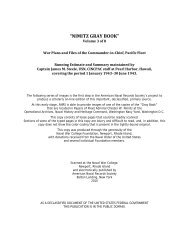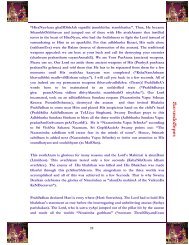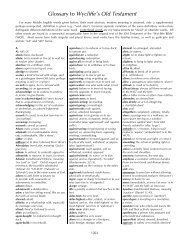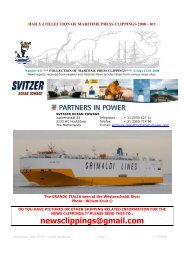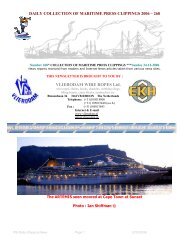Create successful ePaper yourself
Turn your PDF publications into a flip-book with our unique Google optimized e-Paper software.
118 ATLANTIC THEATER<br />
tions, when its size was such that naval <strong>of</strong>ficers had doubts about its<br />
continued existence. Only with much argument had the secretary<br />
managed to persuade Congress to refit ships laid up in ordinary. New<br />
construction before the commencement <strong>of</strong> the War <strong>of</strong> 1812 was out <strong>of</strong><br />
the question.<br />
The onset <strong>of</strong> war, however, brought a new dimension to the<br />
secretary's job. Whether the navy should be used if war came had been<br />
a question debated in the presence <strong>of</strong> President Madison in February<br />
1812. Secretary Hamilton, perhaps playing deviL's advocate, suggested<br />
that with such a smaLL navy, the United States would risk losing it entirely<br />
in sending ships against the British fleet . According to Irving<br />
Brant, Madison's biographer, the president took the side <strong>of</strong> the navy's<br />
more aggressive captains and argued that victories would be needed<br />
and that if our ships were lost in seeking them, they could be replaced. I<br />
With this phase <strong>of</strong> the argument settled, the question <strong>of</strong> precisely<br />
how the navy would be used remained at issue. Secretary Hamilton was<br />
careful to solicit the opinions <strong>of</strong> two <strong>of</strong> the most experienced and successful<br />
<strong>of</strong> the navy's commanders, Commodores John Rodgers and<br />
Stephen Decatur. Letters containing their replies foLLow in the order in<br />
which they were received. Their opinions differ particularly in regard<br />
to the proper disposition <strong>of</strong> warshIps at sea. Commodore Rodgers saw<br />
great advantages to be gained from combining aLL shIps in a cruising<br />
squadron that would search out British convoys and force the British to<br />
concentrate, drawing their warshIps away from A merican harbors.<br />
Commodore Decatur argued that navy ships would have better results<br />
if they were to operate either singly or in pairs.<br />
J Irvcng Brant, "r",ud Presidentl Futile War!" Am~rican H~ritage .<br />
Yol X . No. 6 (Oct.<br />
19"). PI' . • 6 .f7. 8'-89, Linda Maloney, "Tile War <strong>of</strong> 1812 WhGt Role/or Sea Power!" In<br />
Kenneth J. Hagan, ed., In Peace and War: Interpretations or American Naval History<br />
(Westport, Conn .. 1978), pp 46- 62.<br />
SECRETARY OF THE NAVY HAMILTON TO COMMODORE JOHN ROOCERS<br />
Comre Rodgers<br />
NYork<br />
Nav: Dep'mt<br />
21 May 1812<br />
As a war appears now inevitable, I request you to state to me, a plan<br />
<strong>of</strong> operations, which, in your judgment, will enable our little navy to<br />
annoy in the utmost extent, the Trade <strong>of</strong> Gt Britain while it least<br />
exposes it to the immense naval force <strong>of</strong> that Government. State also,<br />
JANUARY- AUGUST 1812 119<br />
the Pons <strong>of</strong> the US which you think the safest as assylums for our navy,<br />
In time <strong>of</strong> war.<br />
P. Hamilton<br />
Copy, DNA . RG45 , SNL, Vol. 10, pp. 41 -42. On the same day, Secretary<br />
Hamilton sent an identical letter to Commodore Decatur: see Hamilton to<br />
Decatur. 21 May 1812 , ibid. , p. 42.<br />
Sir.<br />
COMMODORE JOHN RODGERS TO<br />
SECRETARY OF TIlE NAVY HAMILTON<br />
U.S. Frigate President<br />
Staten Island June 3d, 1812<br />
I have the honor to acknowledge the receipt <strong>of</strong> your letter <strong>of</strong> the 21st<br />
ult, and in answer to your enquiries permit me to state, that in my<br />
humble opinion to annoy the trade <strong>of</strong> Great Britain with the greatest<br />
effect would be at the commencement <strong>of</strong> a War, to dispose our comparatively<br />
very small force , in such a way as to harrass her W India<br />
commerce by our lightest vessels: and her coasting trade, East India<br />
trade & other foreign trade by our Frigates & one or two <strong>of</strong> our fastest<br />
sailing sloops <strong>of</strong> war: our small vessels to be disposed in a way, according<br />
to circumstances, to annoy to the greatest extent all the avem:es<br />
leading to & from her West India Islands, Surinam, Berbice, &<br />
D~namara: a. small squadron <strong>of</strong> two, or three <strong>of</strong> our fastest sailing<br />
fngates & a slOgle sloop <strong>of</strong> War, to cruise on the coasts <strong>of</strong> England,<br />
Ireland, & Scotland; & the residue <strong>of</strong> our frigates to to act seperately,<br />
or In squadron on our own coasts to harrass the enemy by cruising in<br />
the tracts <strong>of</strong> his ships trading between him & his colonies <strong>of</strong> Canada<br />
Nova Scotia, & Newfoundland; and occasionally to unite all ou~<br />
Frigates & attack his East India convoys. -<br />
This, Sir, would in my opinion, be the most advisable disposition<br />
that could be made <strong>of</strong> our little navy, at least for the first six months,<br />
perhaps during the whole <strong>of</strong> the War: as it would be menacing them<br />
10 the very teeth, & effecting the the distruction <strong>of</strong> their commerce in a<br />
manner the most perplexing to their government, & in a way the least<br />
expected by the nation generally, including those belonging to the<br />
Navy: the self styled Lords <strong>of</strong> the Oceanll


